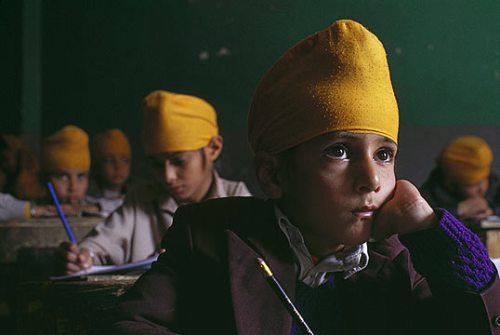The Unanswered Plight Of The Hindus And Sikhs in Afghanistan

Hinduism dates back further than 5000 BCE. It has spread to many parts of Asia, and for the past seven thousand years, Hindus have settled all over Asia. One such region where Hinduism has flourished is Afghanistan. In this once beautiful region, Hindus were able to peacefully observe their many cultural and religious traditions freely. Hindus thrived there, and many of these Hindu families have descendants still living in Afghanistan.
Similarly, Sikhs were living freely all over India, Pakistan, Afghanistan, and Iran. During the reign of Maharaja Ranjit Singh Ji, the Sikhs spread their empire greatly. Sardar Hari Singh Nalua was the leader who led the Sikhs to victory in Afghanistan. Ever since then, Sikhs have been living all over Afghanistan. Many of these Sikhs speak Punjabi, but most are fluent in Pashto, as they consider themselves Afghanis.
After centuries of peace and prosperity in Afghanistan, a new wave of terror has disrupted the lives of many, and has shattered Hindu and Sikh communities in Afghanistan. The reign of the Taliban ravaged these communities and restricted all their religious freedoms. This led to mass oppression, and many of these Hindus and Sikhs fled to India and Europe. Currently, the number of Hindu and Sikh Afghanis is rapidly declining, and they are now crying out for help. But nobody wants to answer. Not even India.
The people who have lived in Afghanistan for centuries and have become a vital part of the history of the country now have no place within Afghani society. After the Taliban, Hindu and Sikh women were forbidden from leaving their houses, and all Sikh men were required to wear yellow patches and were prohibited from dressing like the Muslim Afghanis. They were also forced to fly yellow banners outside their dwellings and shops to show they were minorities.
The Taliban forbid the communities from building new Mandirs and Gurdwaras.The Taliban had destroyed some of the oldest Gurdwaras in the world, dating back to the time of Maharaja Ranjit Singh Ji, and the people were kicked out or killed. Hindus and Sikhs were prohibited from living with Muslims, shaking hands with Muslims, or dressing like Muslims. They were also forbidden from cremating the dead, a practice that had been going on in these communities for hundreds of years. All religious freedoms were limited.
It is now 2014, and Afghanistan has a new government and the Taliban is no longer in power. But little has changed for these communities. The help they demand is not being given. India has done very little to nothing for these communities. In fact, India has been very ‘lazy’, for lack of a better word, when it comes to offering citizenships for the Hindus and Sikhs. The problem here is that they have been in Afghanistan for years, and due to the lack of income, many are too poor to move to India. Awtar Singh Khalsa is currently a Sikh member who serves in the Afghani government and has been fighting for Sikh rights, but has still not seen any improvement. It is clear that no action as of now will be taken to improve the situation of our Hindu and Sikh brothers and sisters, which is why we young Indians are critical to the movement. Young Hindus and Sikhs are being denied access to education and religious rights. The current generation of Indians can bring change to this society, and there is a moral obligation to spread awareness to help our brothers and sisters in need.
[Image courtesy of Steve McCurry]



